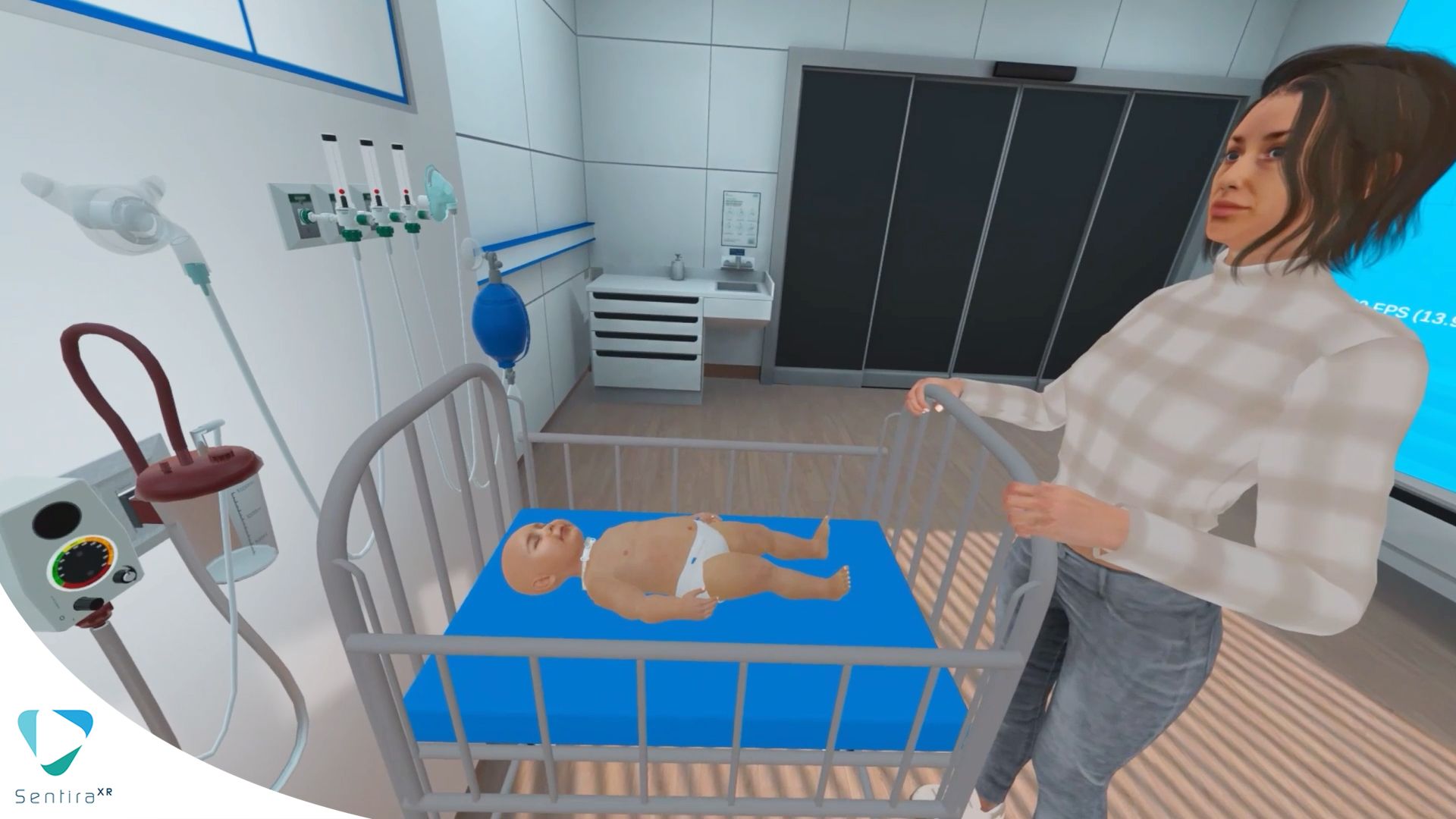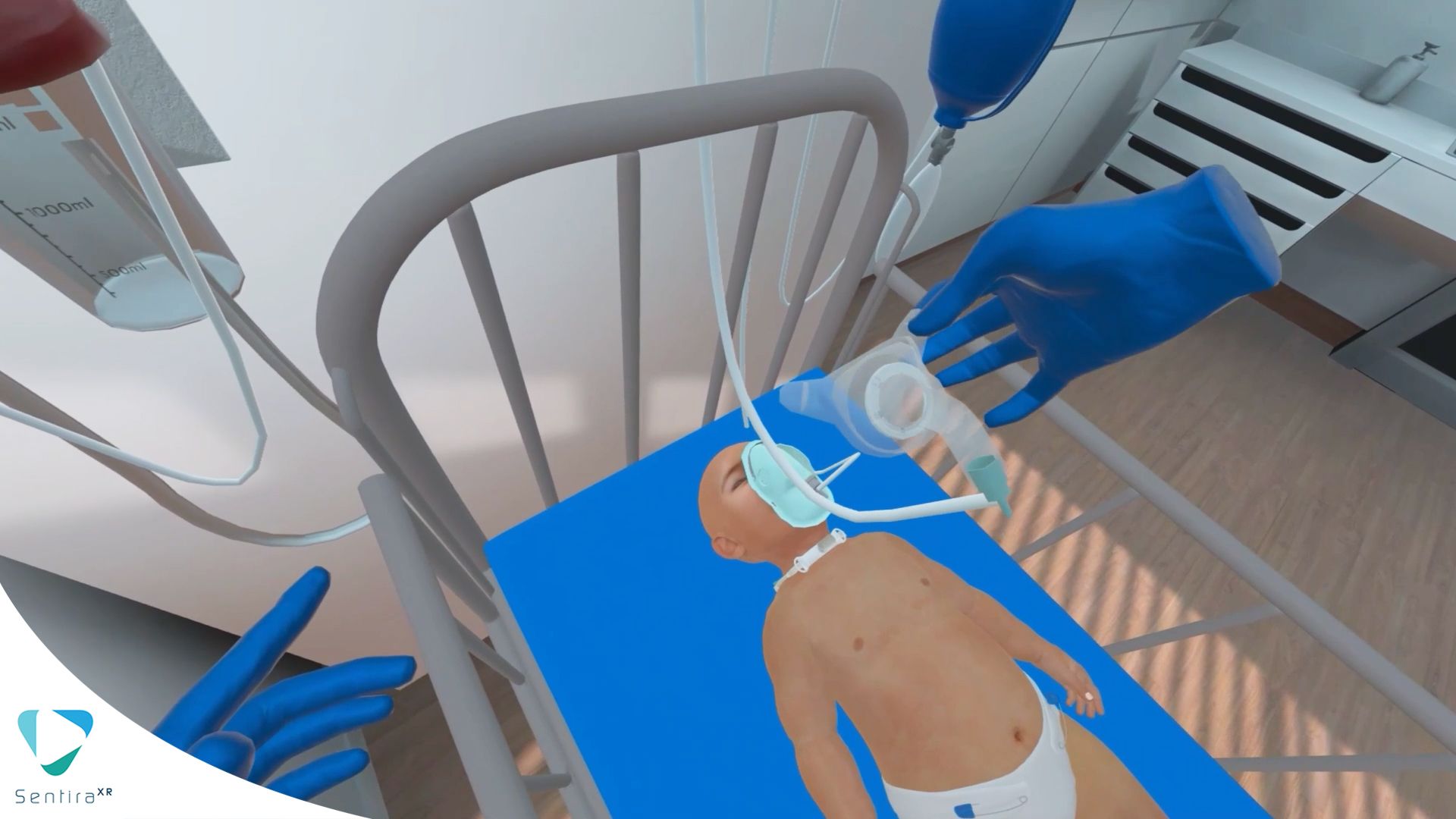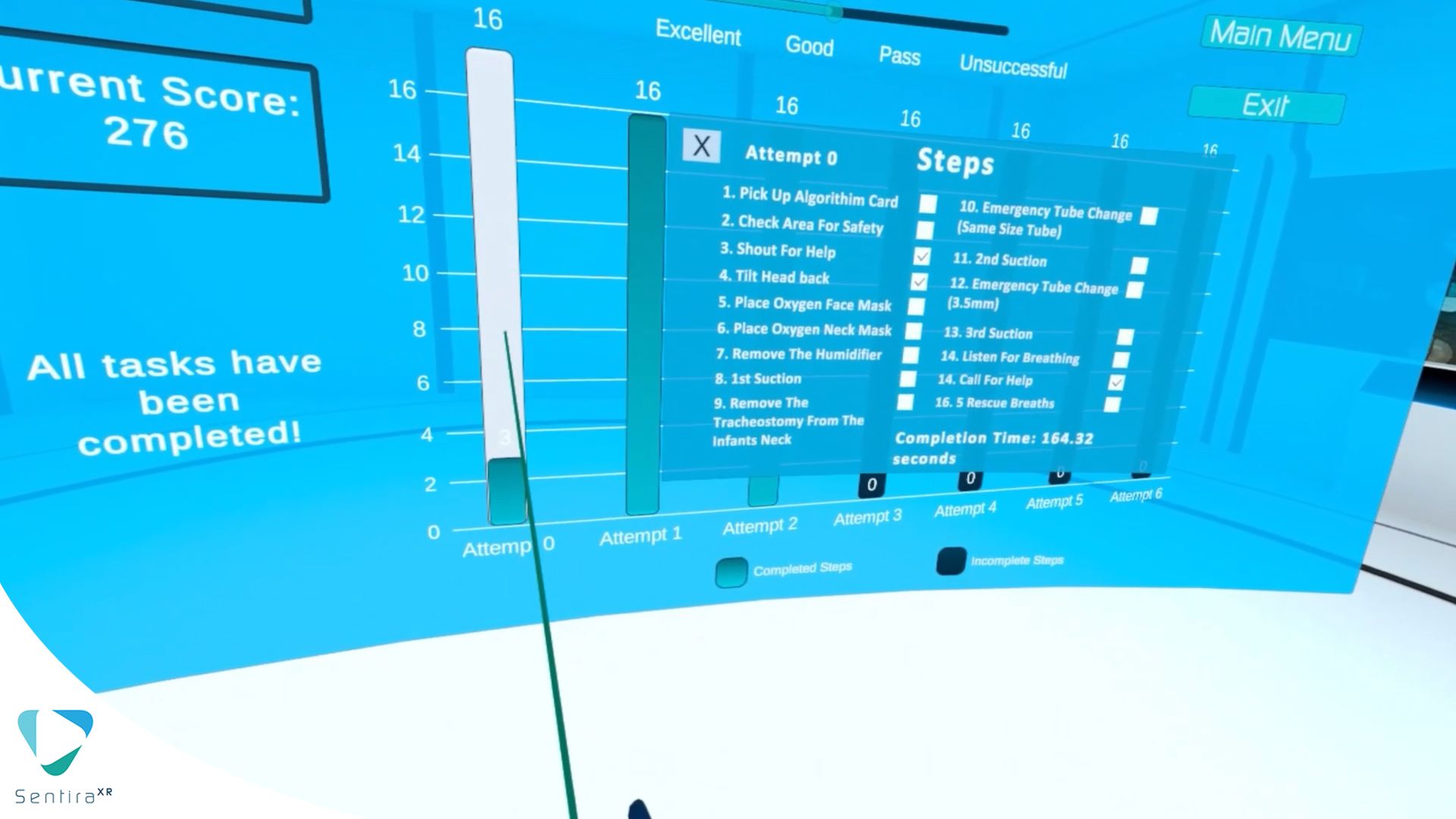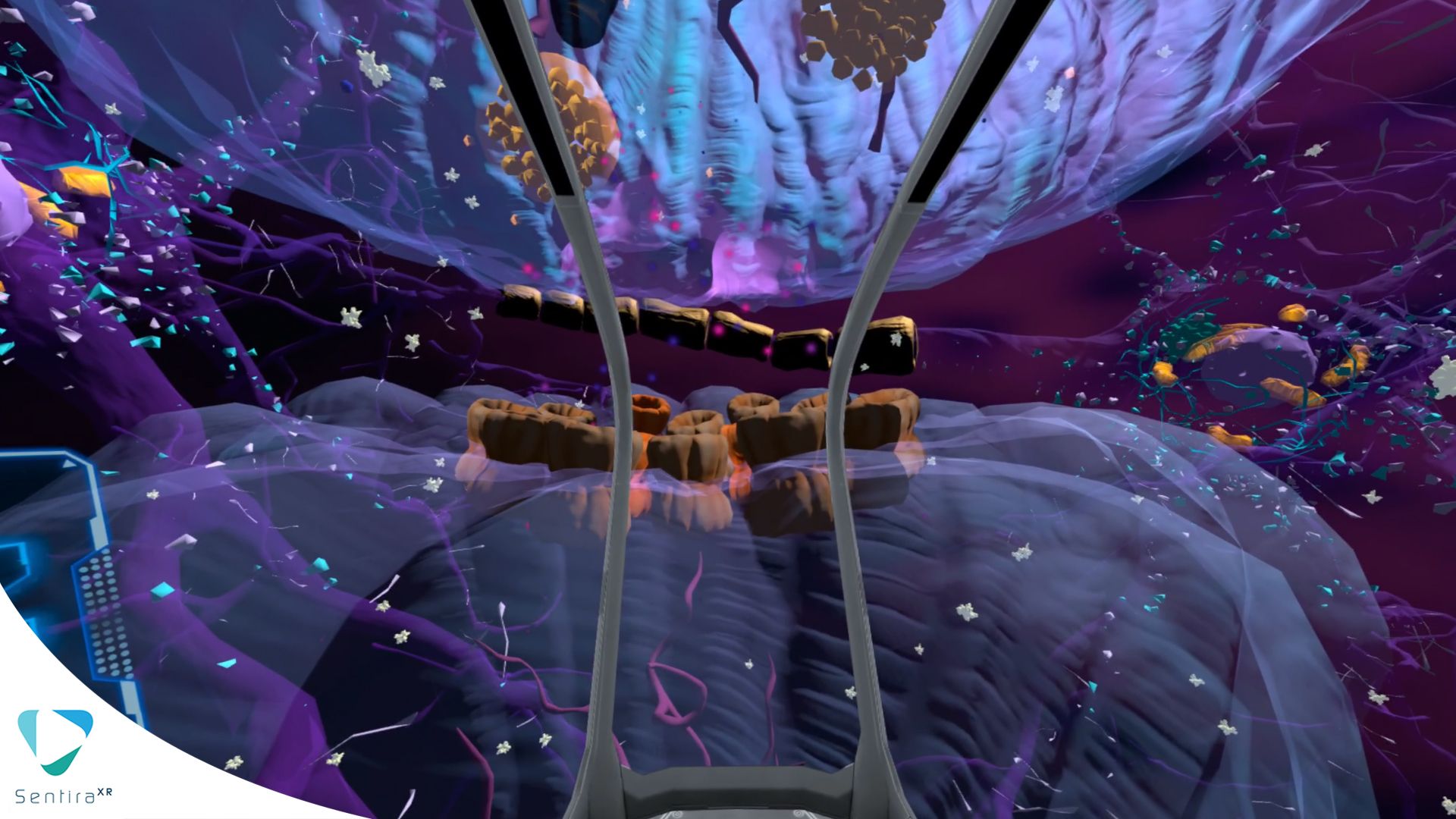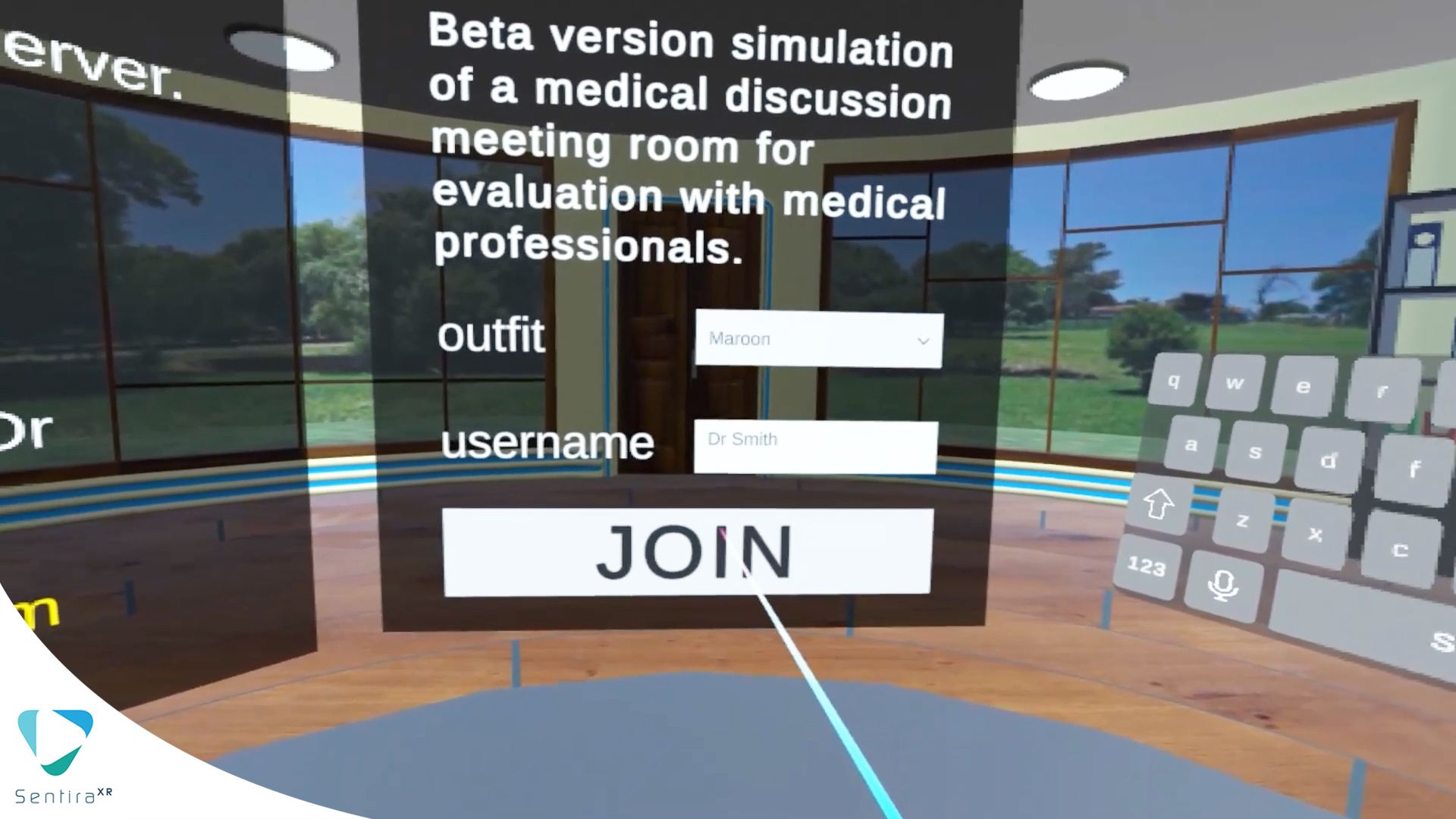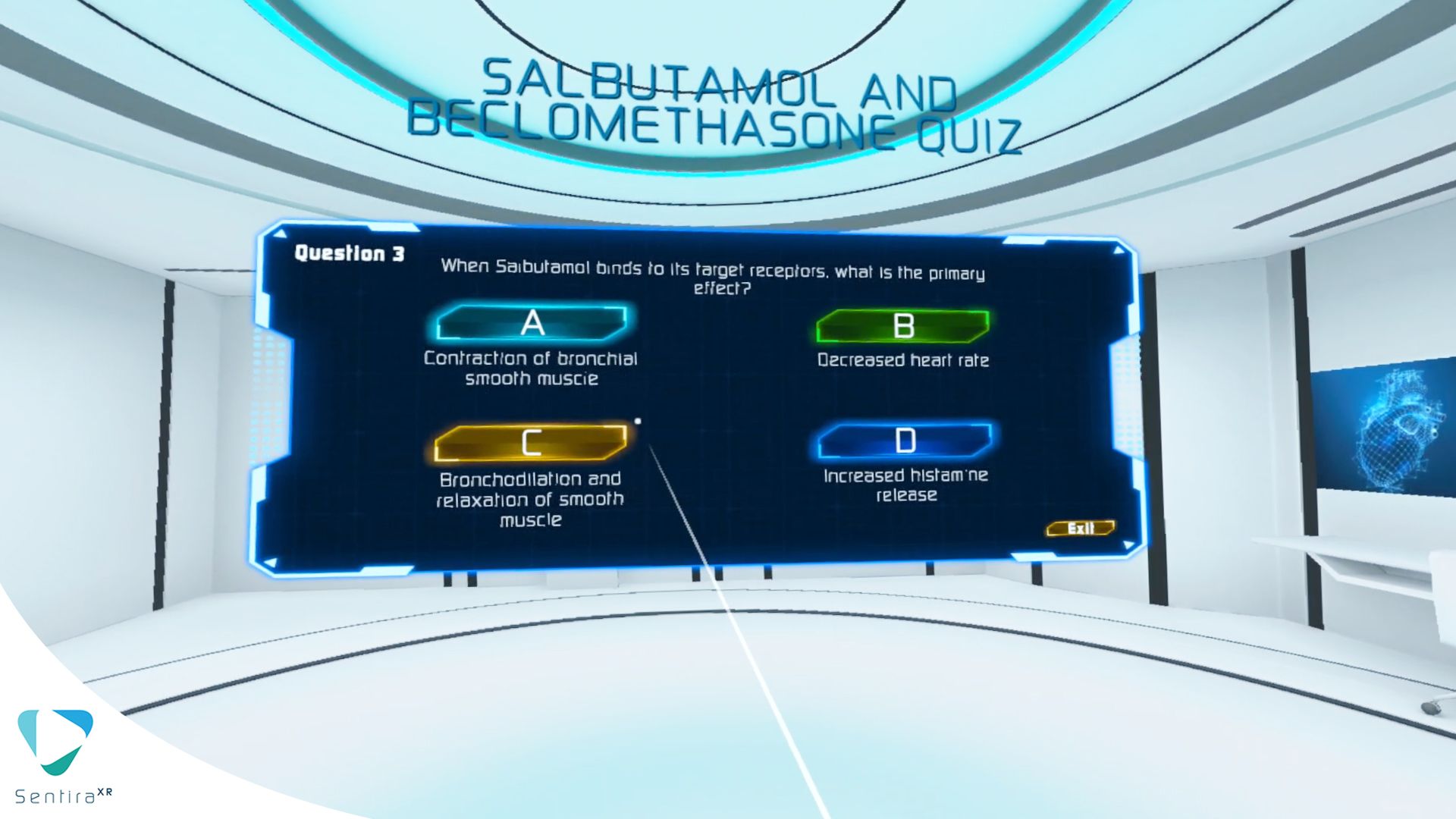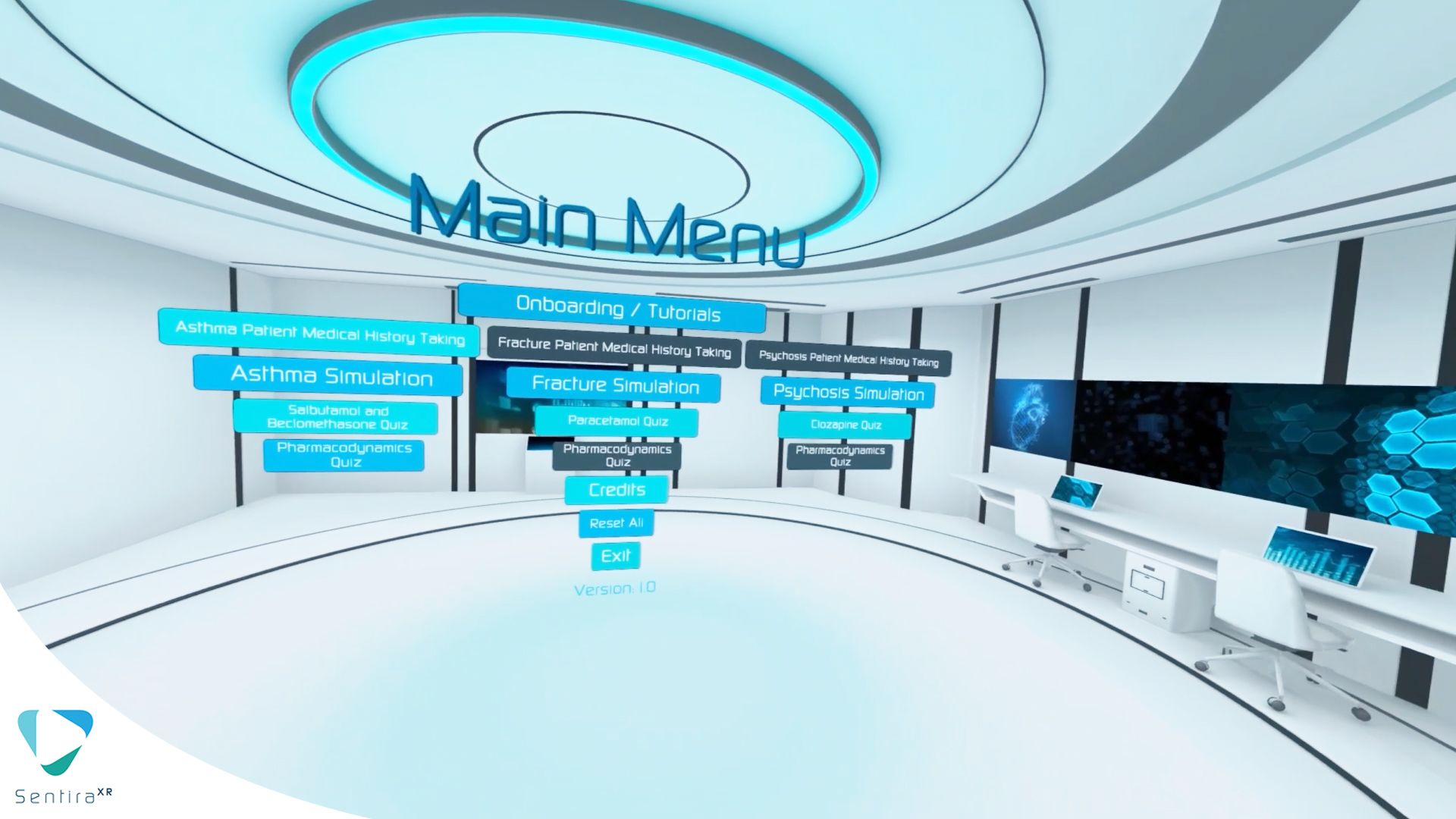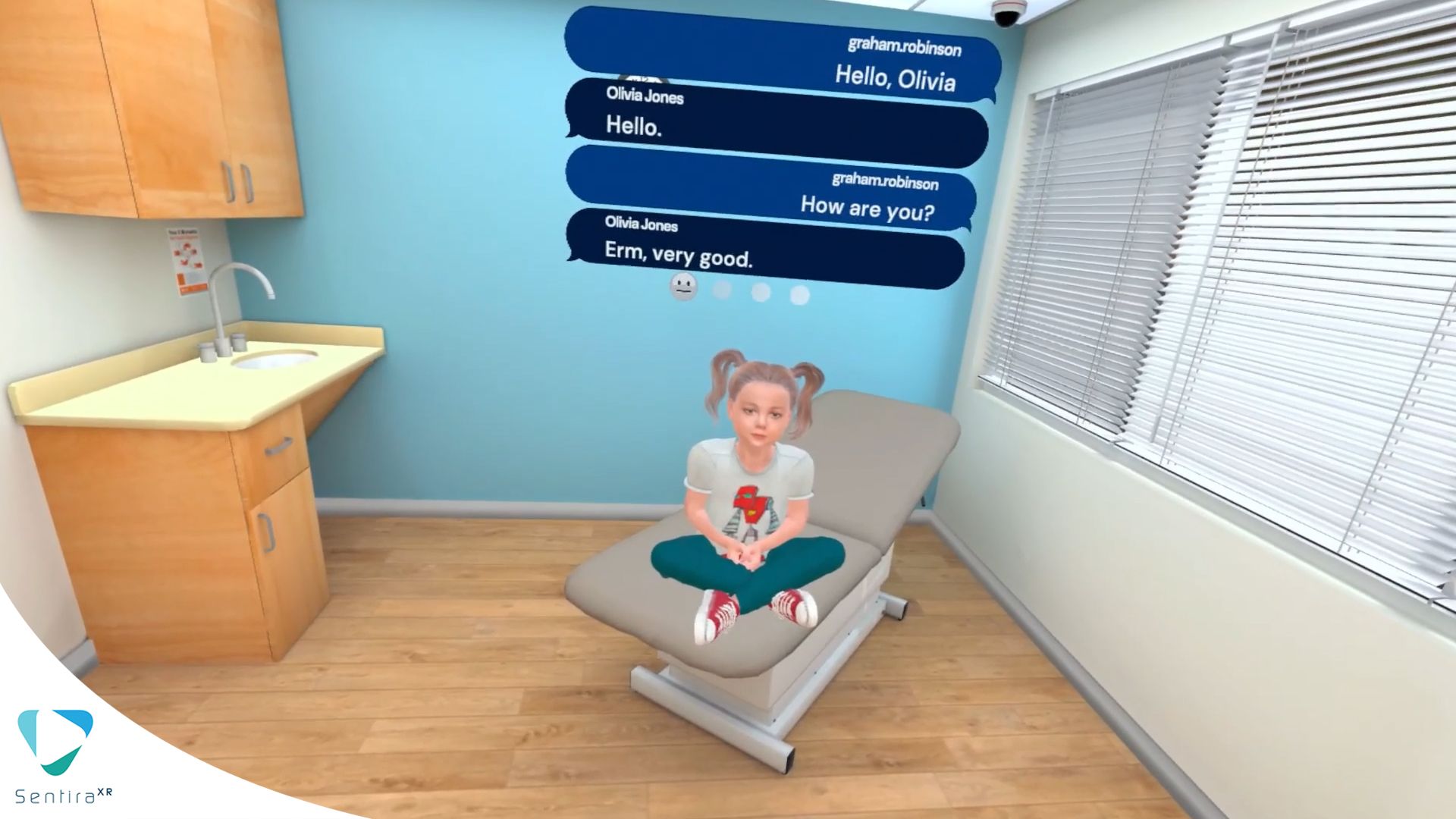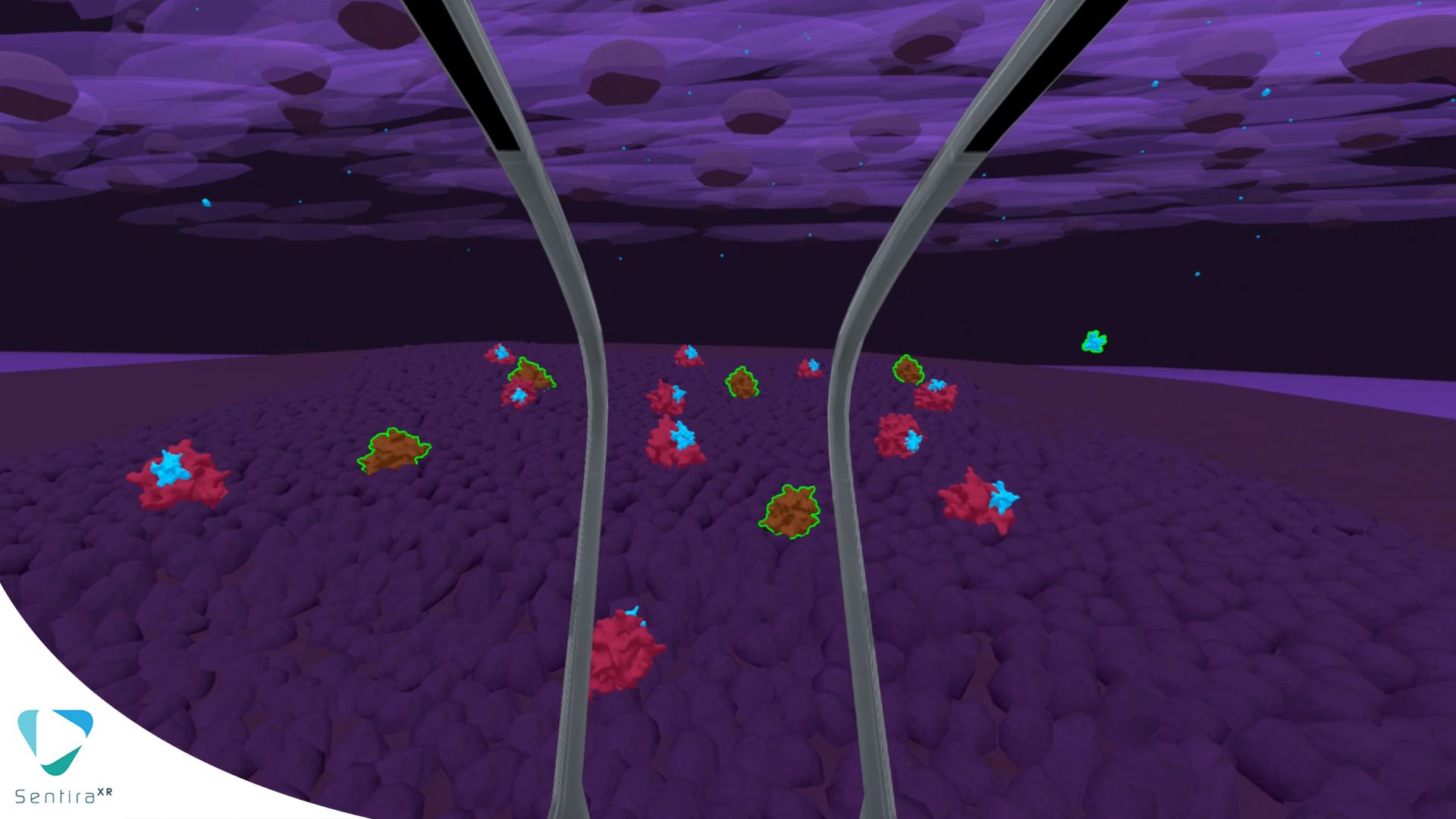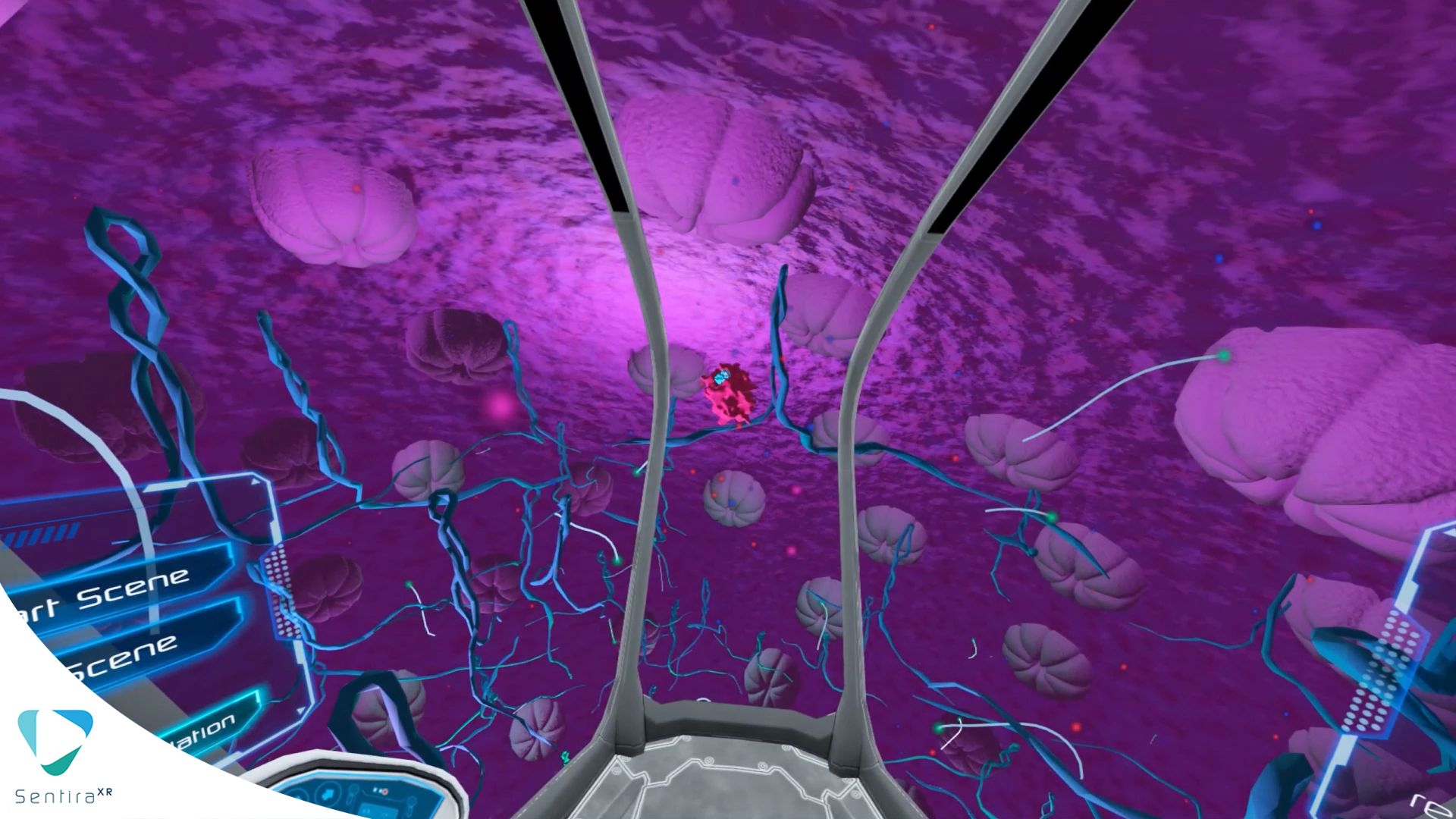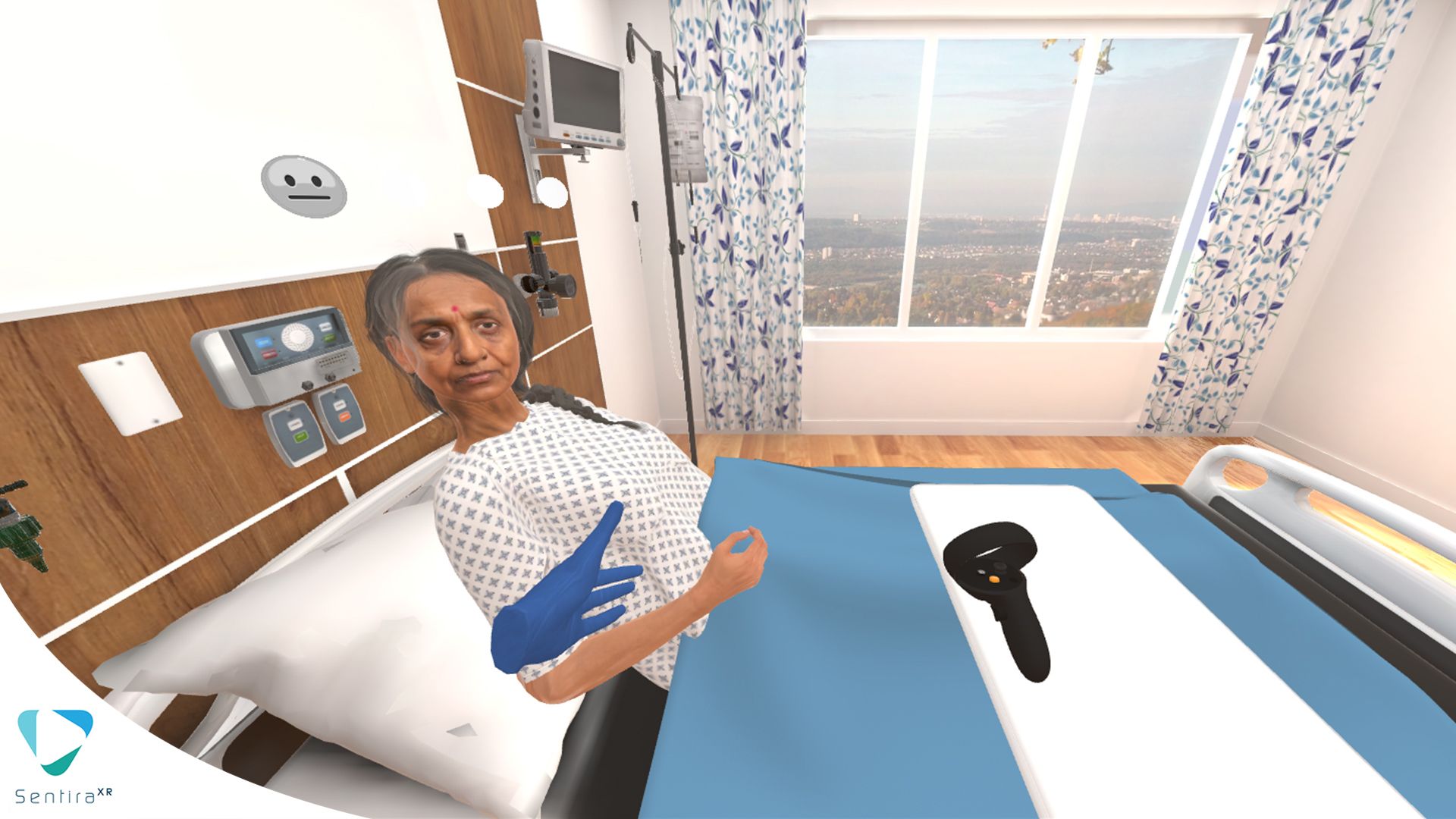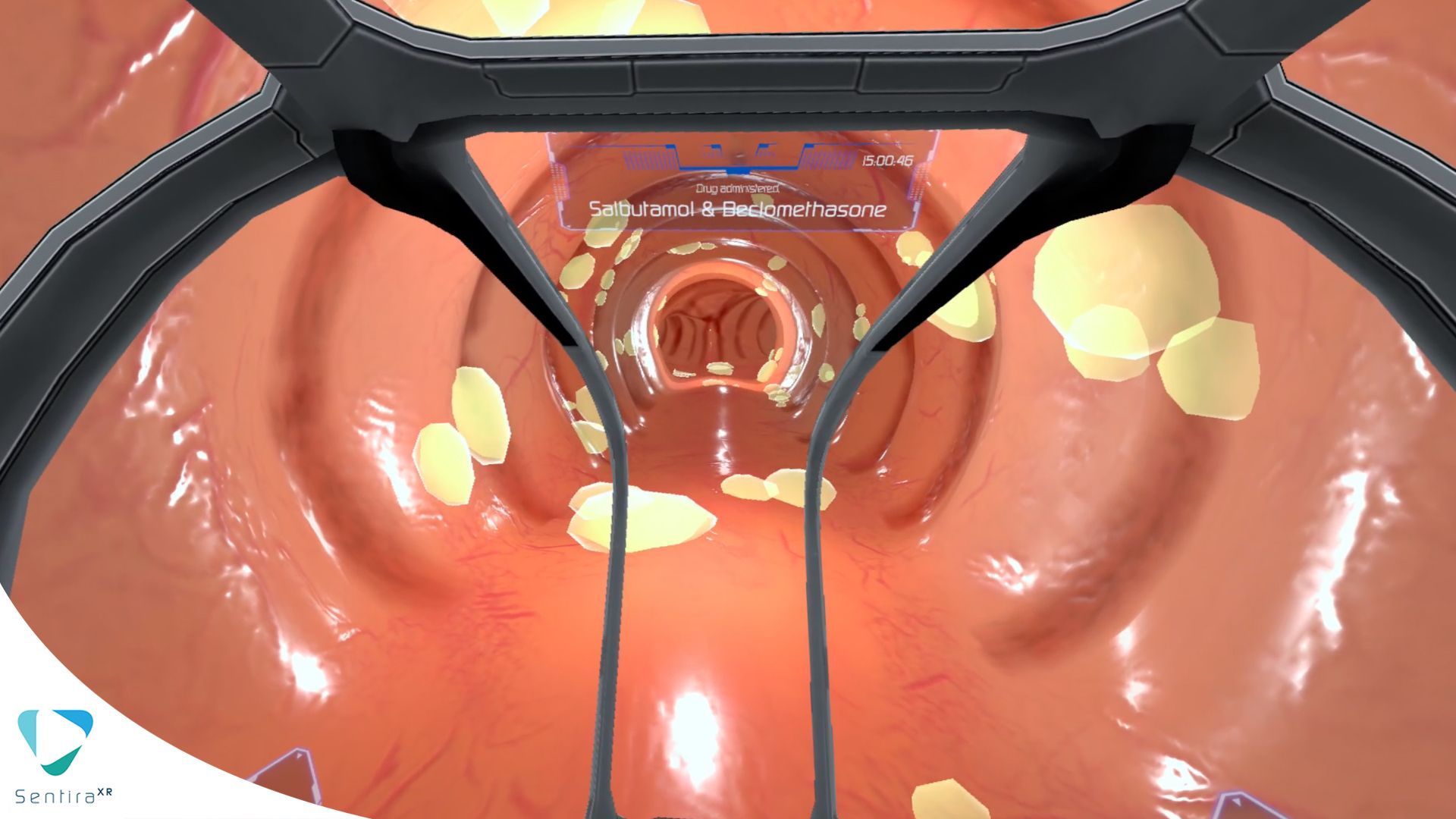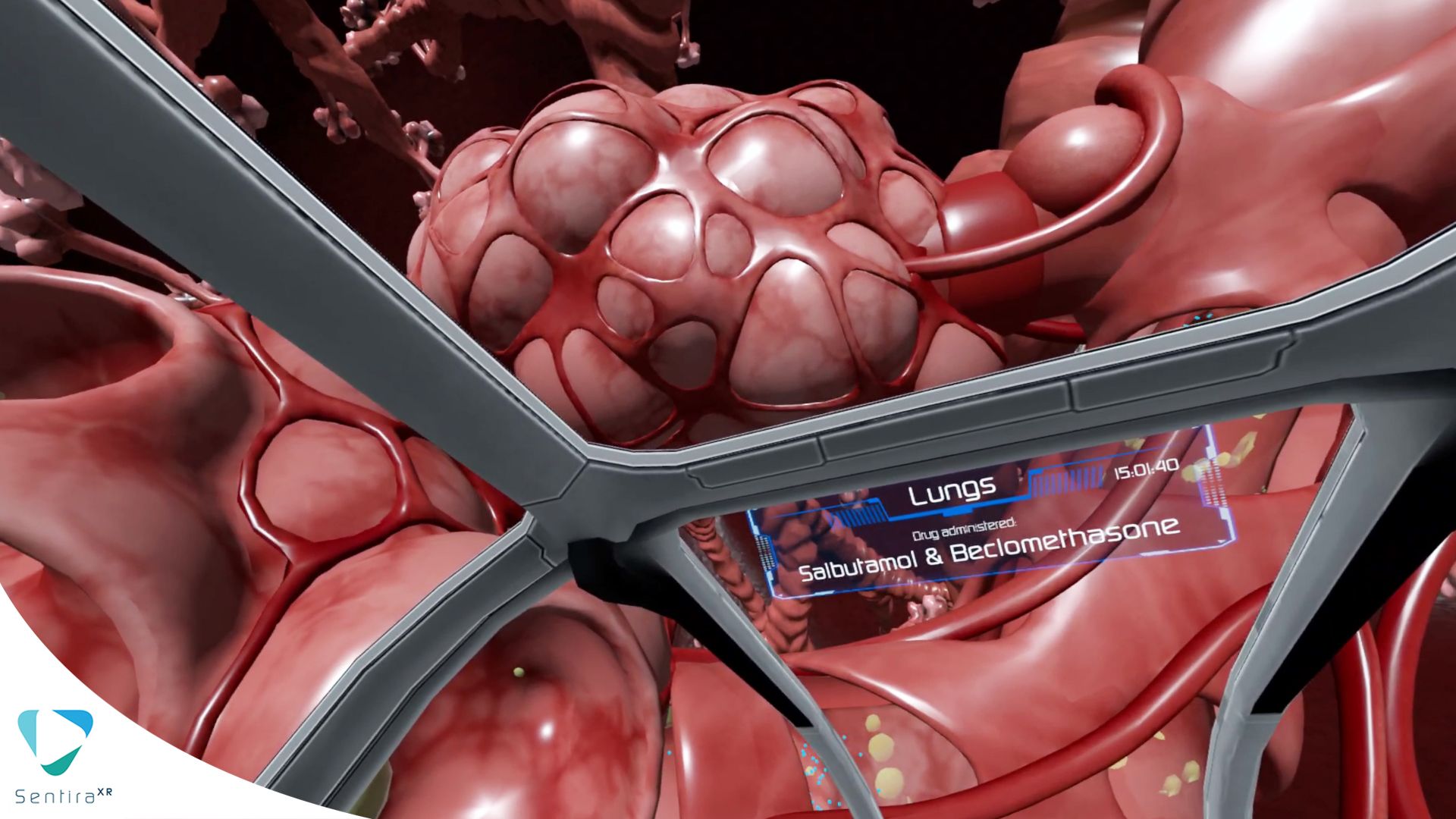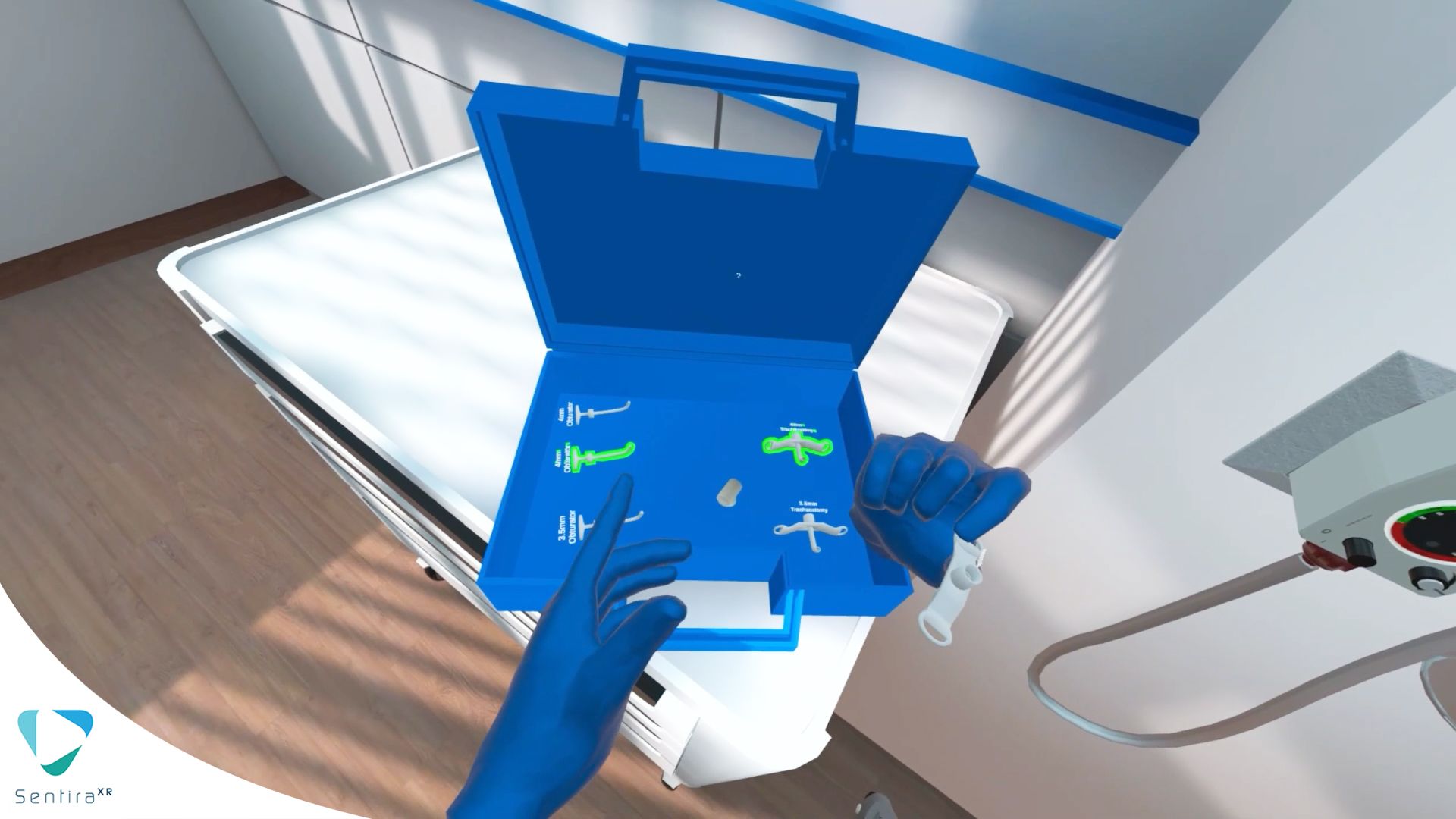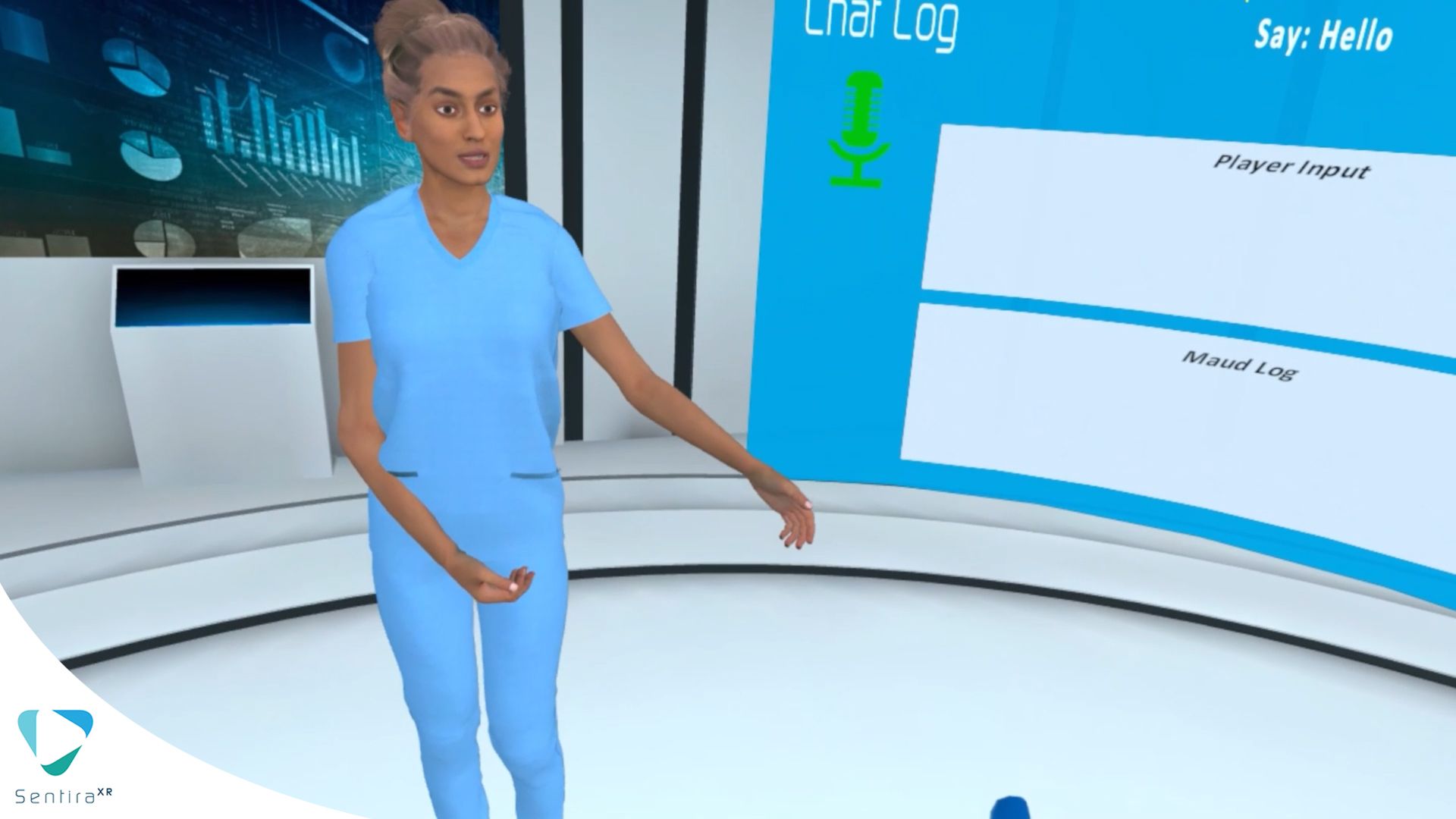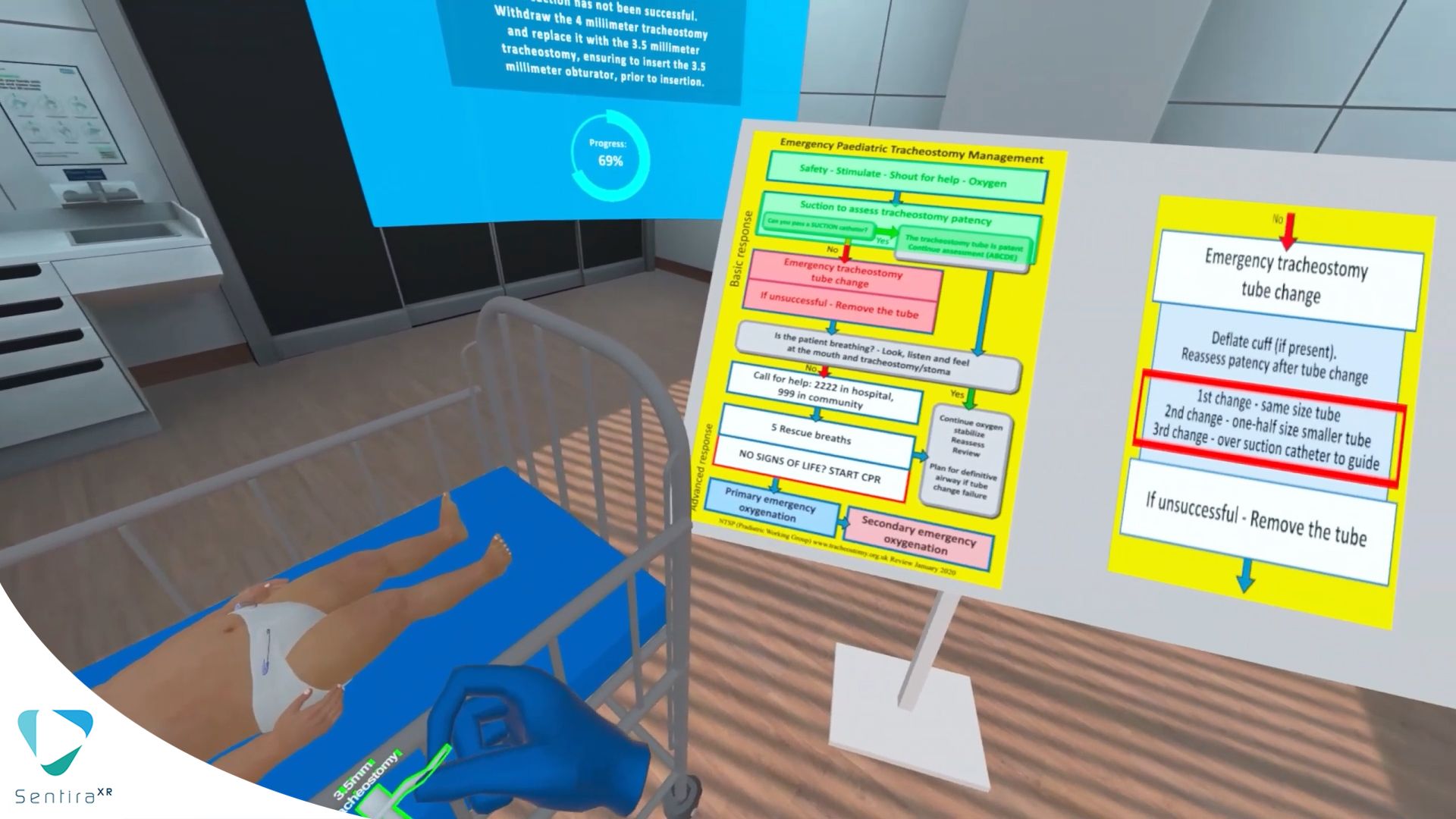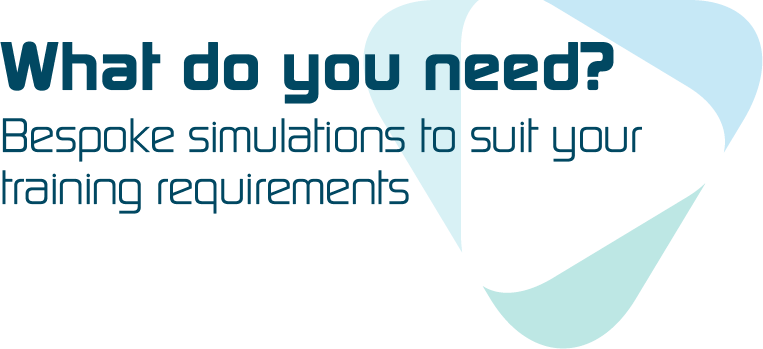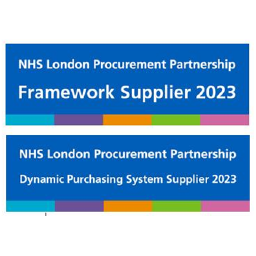
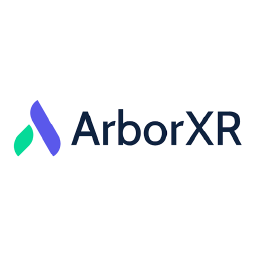
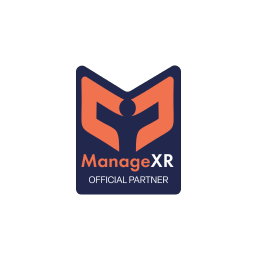
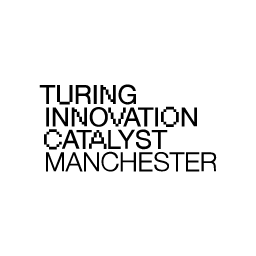
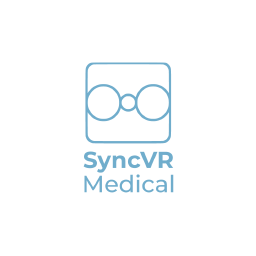
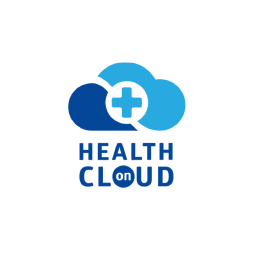
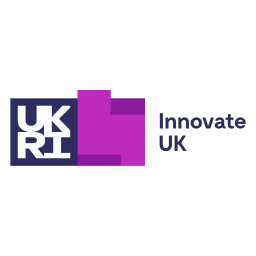


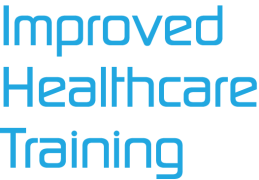
Our extended reality training combines fully immersive environments with natural language processing. This allows students to have psychologically authentic interactions with virtual AI patients, helping them develop clinical reasoning and decision-making skills.
Simulations created for VR, desktop and mobile devices.
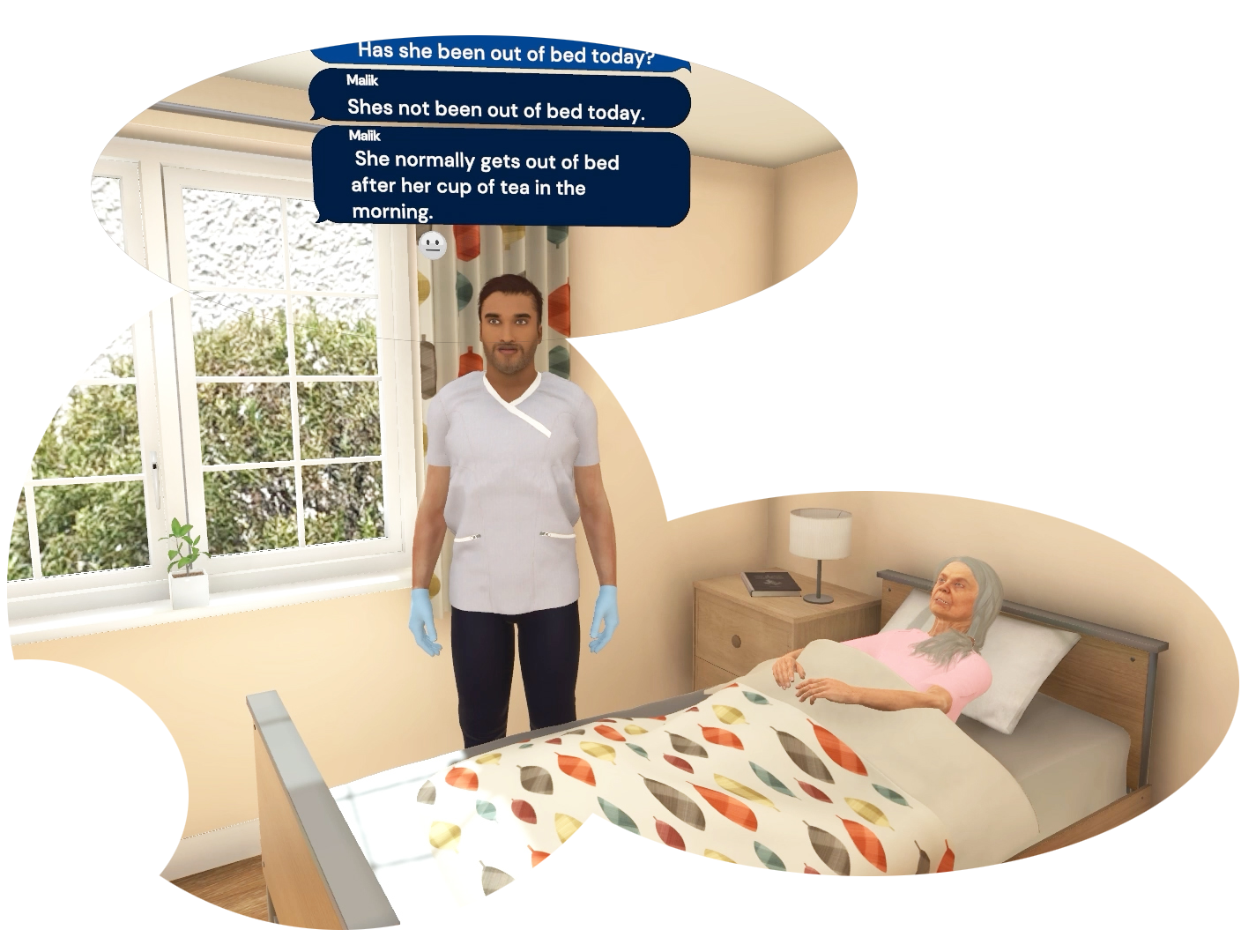
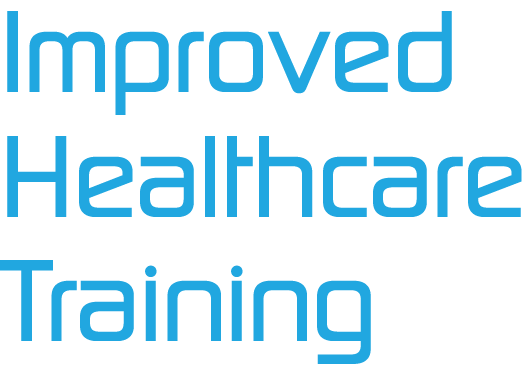
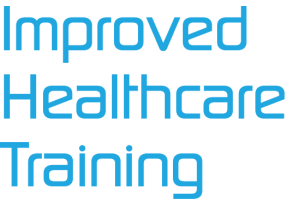
Our extended reality training combines fully immersive environments with natural language processing. This allows students to have psychologically authentic interactions with virtual AI patients, helping them develop clinical reasoning and decision-making skills.
We create simulations for VR, desktop and mobile devices.

-

Psychologically authentic healthcare professional/patient virtual reality experiences and desktop/mobile applications
-
 In-depth VR simulations across multiple medical scenarios and immersive environments
In-depth VR simulations across multiple medical scenarios and immersive environments -
 A ‘sense of presence’ for students encouraging the development of empathic skills
A ‘sense of presence’ for students encouraging the development of empathic skills -
 Fully scalable training delivered on-demand, allowing students to access programmes 24/7/365
Fully scalable training delivered on-demand, allowing students to access programmes 24/7/365 -
 Resource efficient solution that can be used independently or to complement traditional healthcare training methods
Resource efficient solution that can be used independently or to complement traditional healthcare training methods


-
 Psychologically authentic healthcare professional/patient virtual reality experiences
Psychologically authentic healthcare professional/patient virtual reality experiences -
 In-depth VR simulations across multiple medical scenarios and immersive environments
In-depth VR simulations across multiple medical scenarios and immersive environments -
 A ‘sense of presence’ for students encouraging the development of empathic skills
A ‘sense of presence’ for students encouraging the development of empathic skills -
 Fully scalable training delivered on-demand, allowing students to access programmes 24/7/365
Fully scalable training delivered on-demand, allowing students to access programmes 24/7/365 -
 Resource efficient solution that can be used independently or to complement traditional healthcare training methods
Resource efficient solution that can be used independently or to complement traditional healthcare training methods

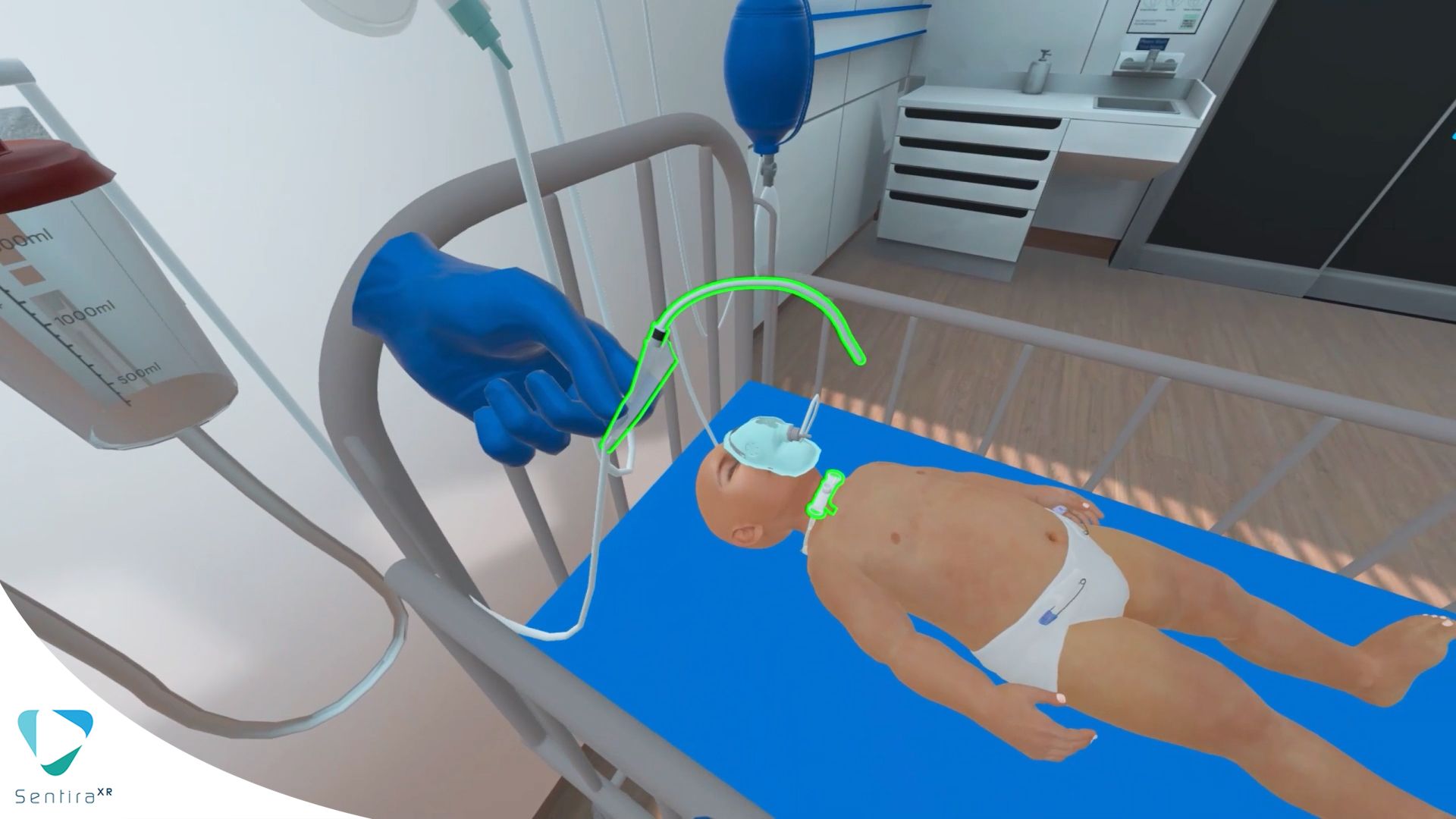
Paediatric Tracheostomy Simulation
Intensive care unit setting
Infant patient
- VR training/onboarding and practice talking to an AI guide
- Learning mode. Training on emergency airway management (VR participation with audio and visual prompts)
- Medical history taking using natural language processing (NLP) with infant’s mother
- Assessment mode. Emergency airway management without audio and visual prompts
- Assessment and feedback on competence
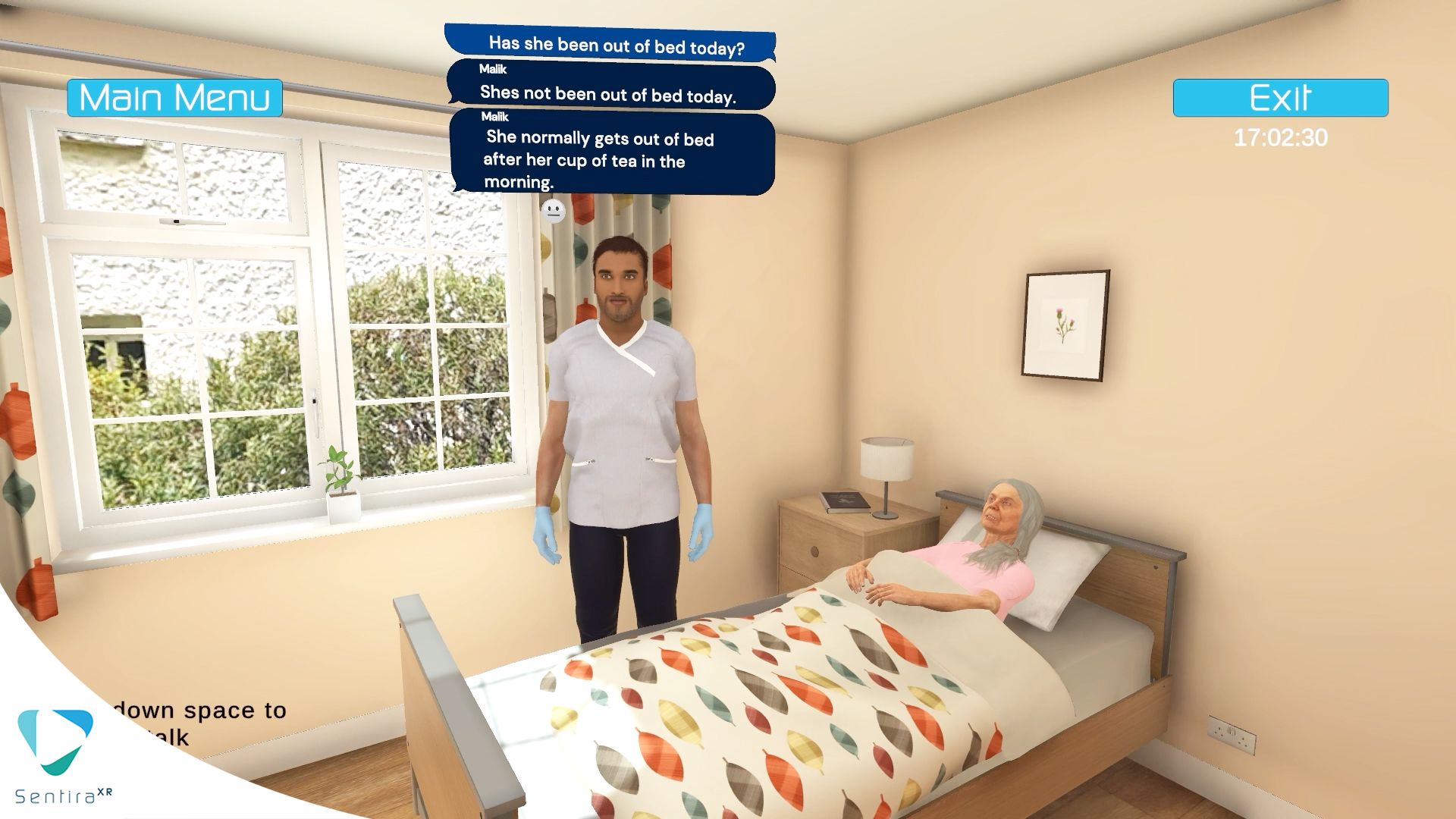
NLP Dementia Simulation
Care Home setting
Elderly patient with dementia
- Speak to a generative AI healthcare assistant about patient’s decline in health
- Determine the best course of action
- Assessment and feedback on questions asked and information collected
- Multi-user option
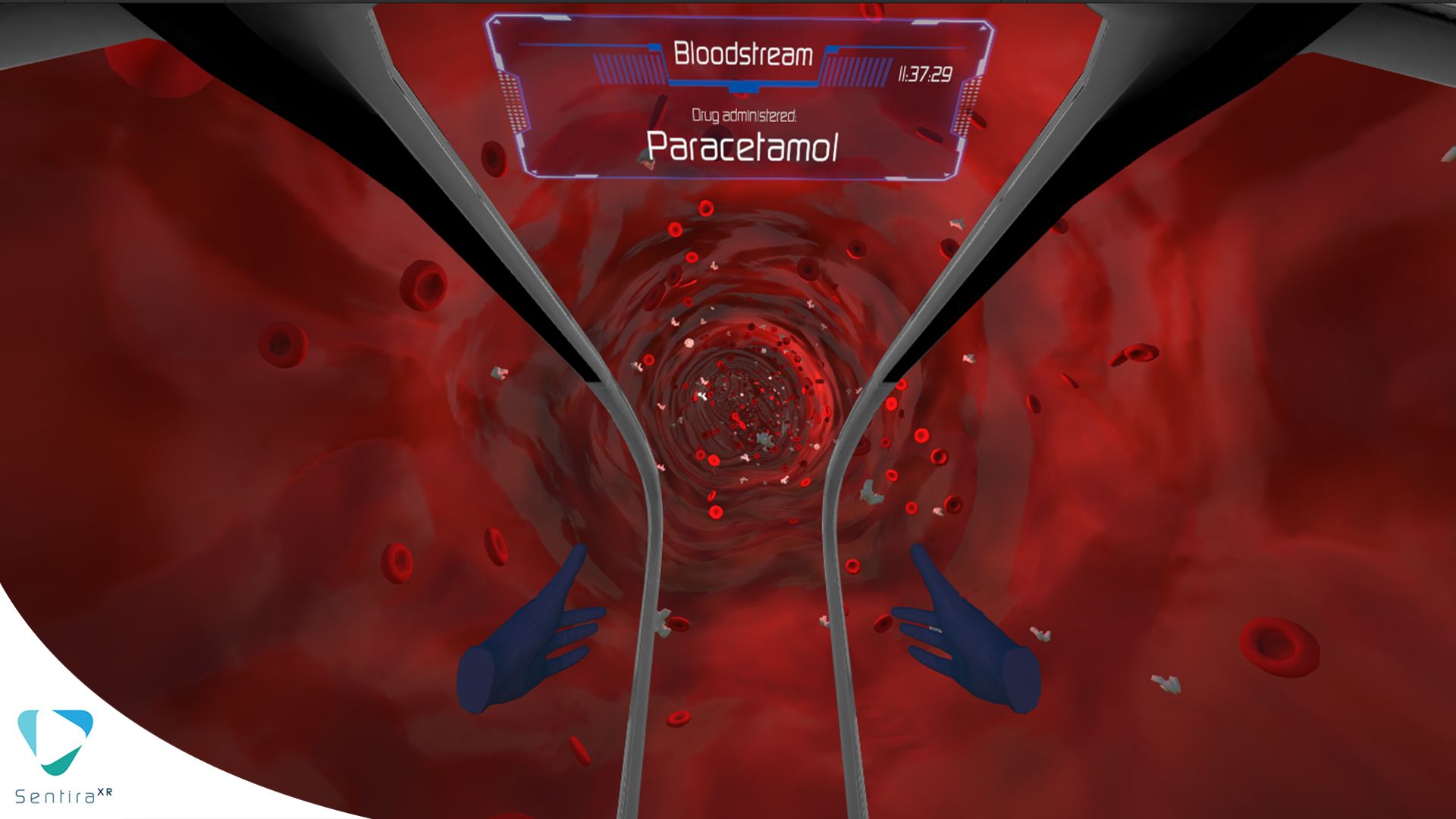
Fracture Simulation
Hospital setting
Elderly patient with a fractured hip after a fall
- VR training/onboarding and practice talking to an AI guide
- Medical history taking and pain assessment
- Follow the administered drug pathway through the body with a voiceover guide
- Transport into a nerve cell and learn the cellular mechanism of action of the drug
- Multiple choice quiz on the drug’s mechanism of action
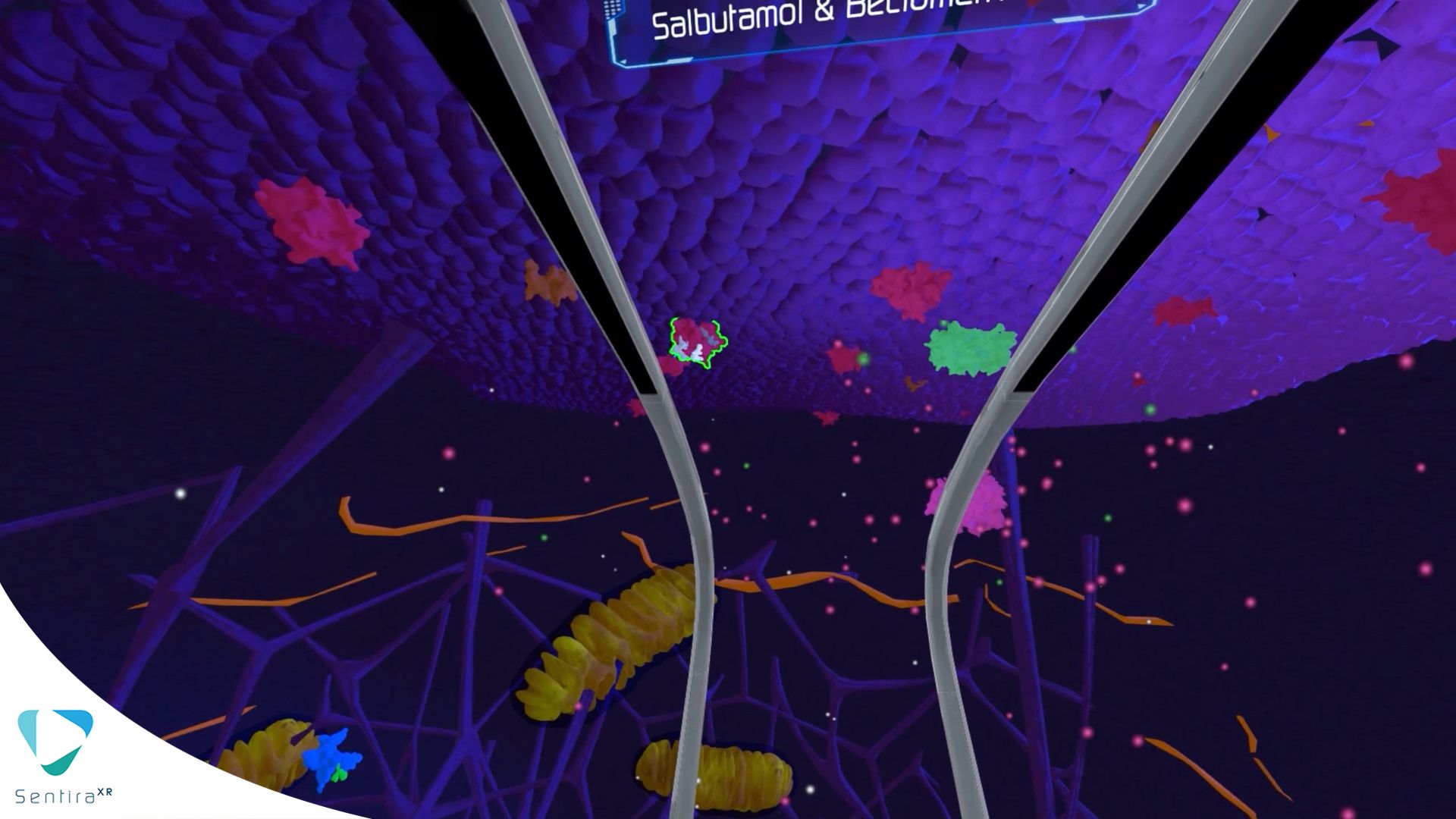
Asthma Simulation
Healthcare setting
Child patient with mother
- VR training/onboarding and practice talking to an AI guide
- Medical history taking and inhaler advice with the child and mother
- Follow the Salbutamol and Beclomethasone drug pathway through the body with a voiceover guide
- Transport into a muscle cell and learn the cellular mechanism of action of both drugs
- Multiple choice quiz on the drugs’ mechanism of action
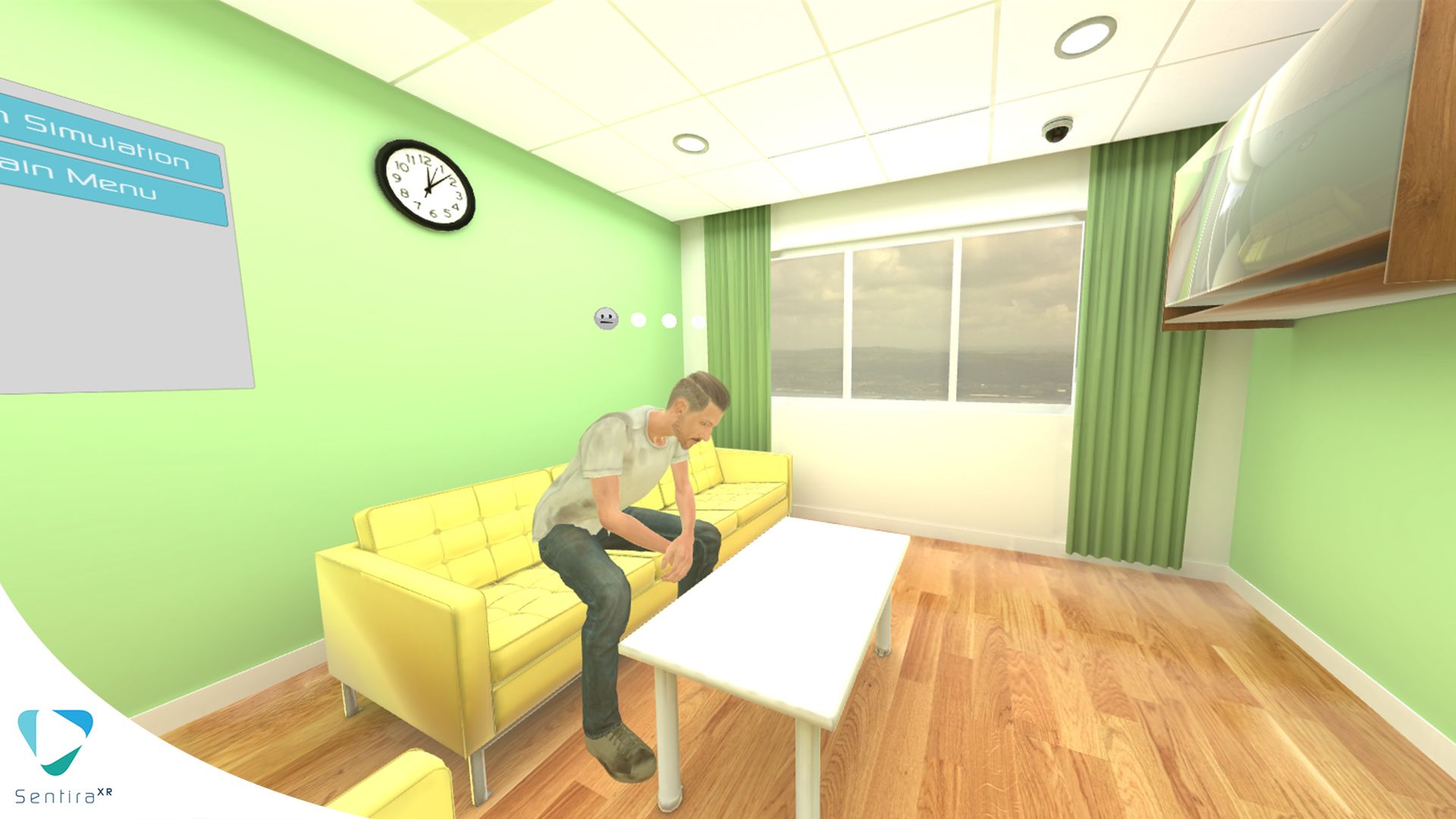
Psychosis Simulation
Clozapine Clinic setting
Young adult with schizophrenia
- VR training/onboarding and practise talking to an AI guide
- Medical history taking and Clozapine assessment advice with the patient
- Follow Clozapine drug pathway through the body with a voiceover guide
- Transport into a nerve cell and learn the cellular mechanism of action of the drug
- Multiple choice quiz on the drug’s mechanism of action
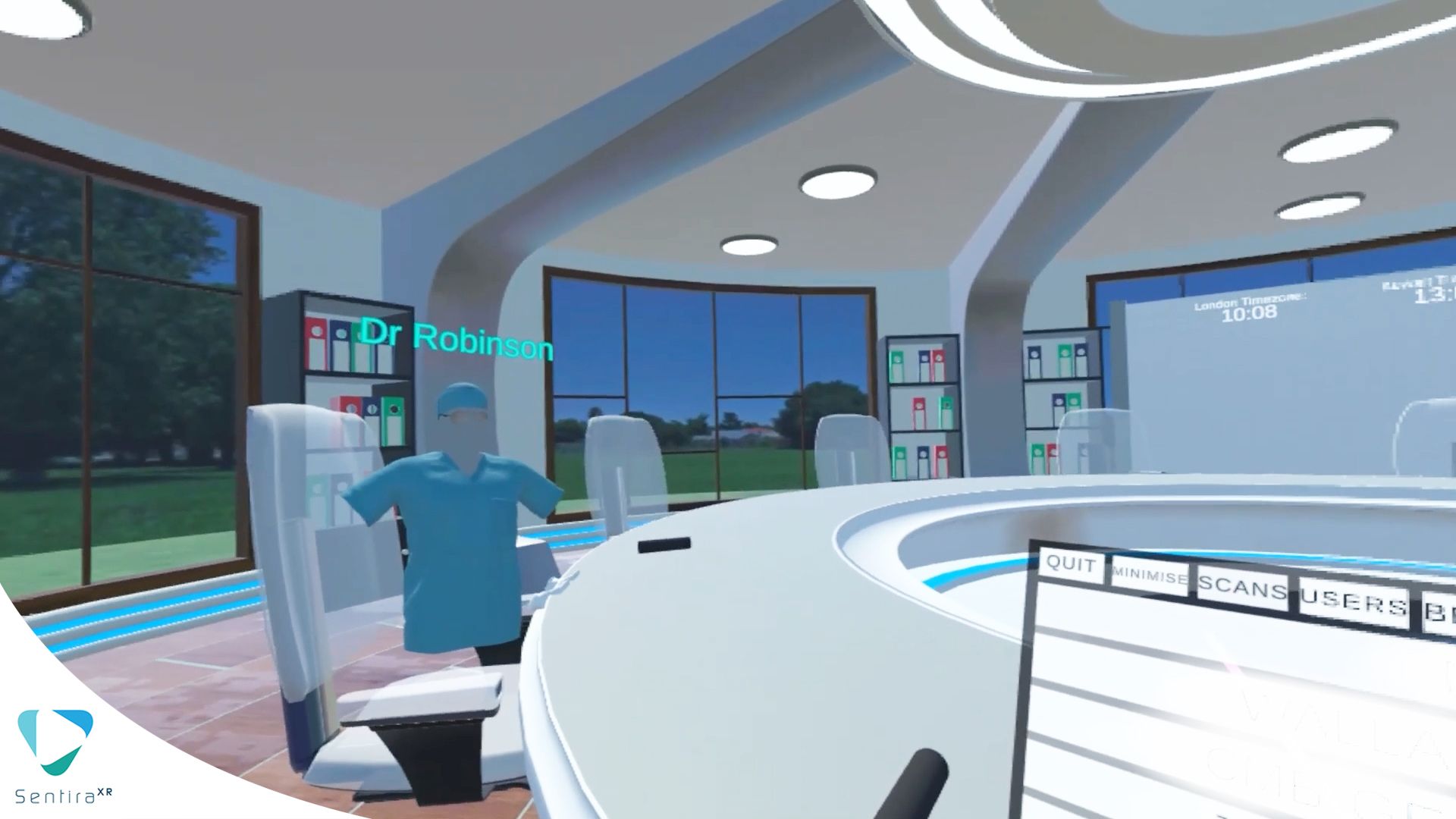
Multidisciplinary Team Meeting Room
MDT meeting room setting
Various patients
- Share and discuss scan results (including 3d diacom files) in a meeting room environment
- Create a login and display name
- Send emails
- Interactive laser pointer and whiteboard
- Speak to an AI assistant regarding patient details
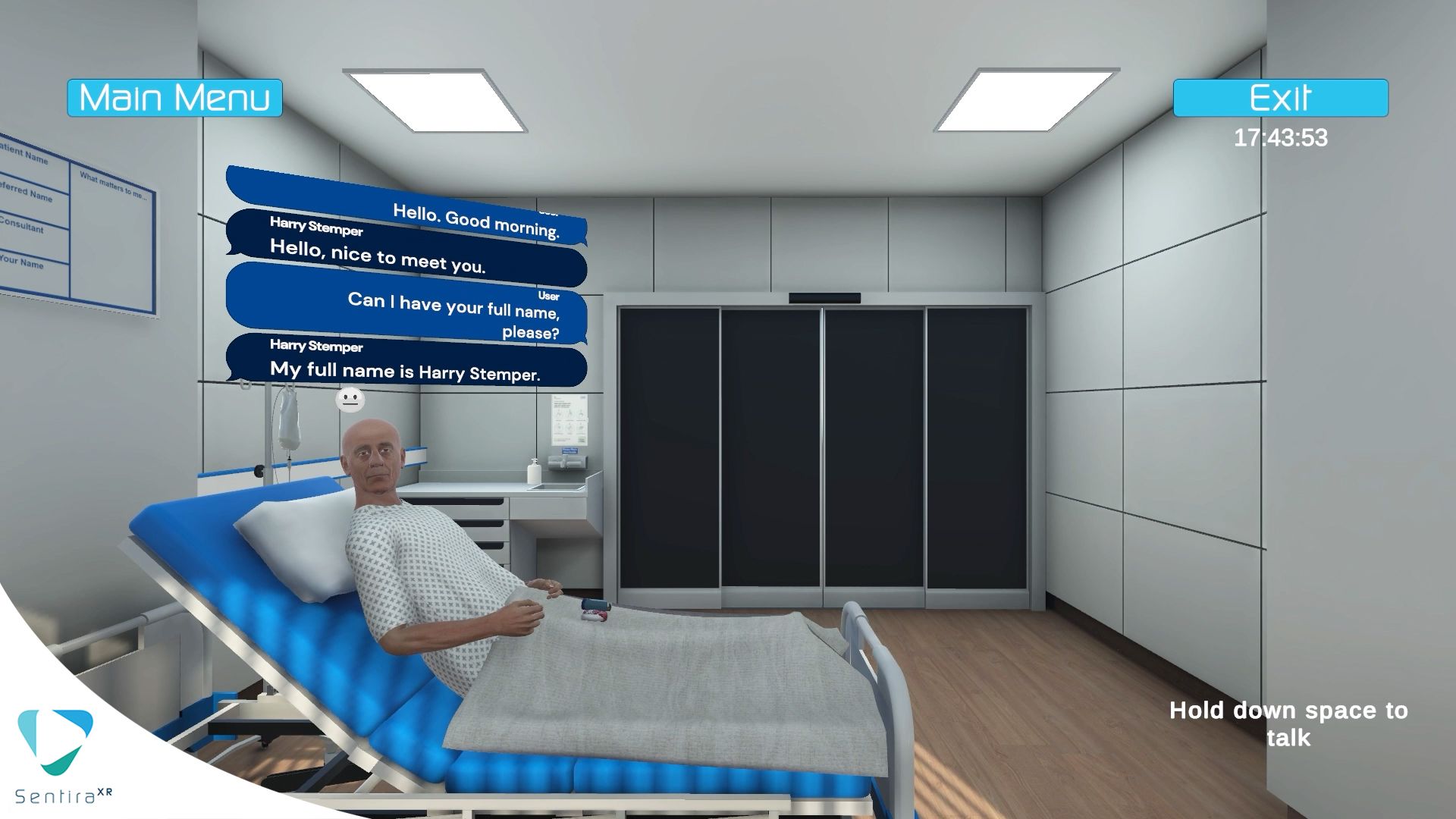
NLP Cancer Simulation
Hospital setting
Elderly patient with lung cancer admitted with chest pains
- Gain consent before taking medical history from the patient
- Assessment and feedback on questions asked and information collected
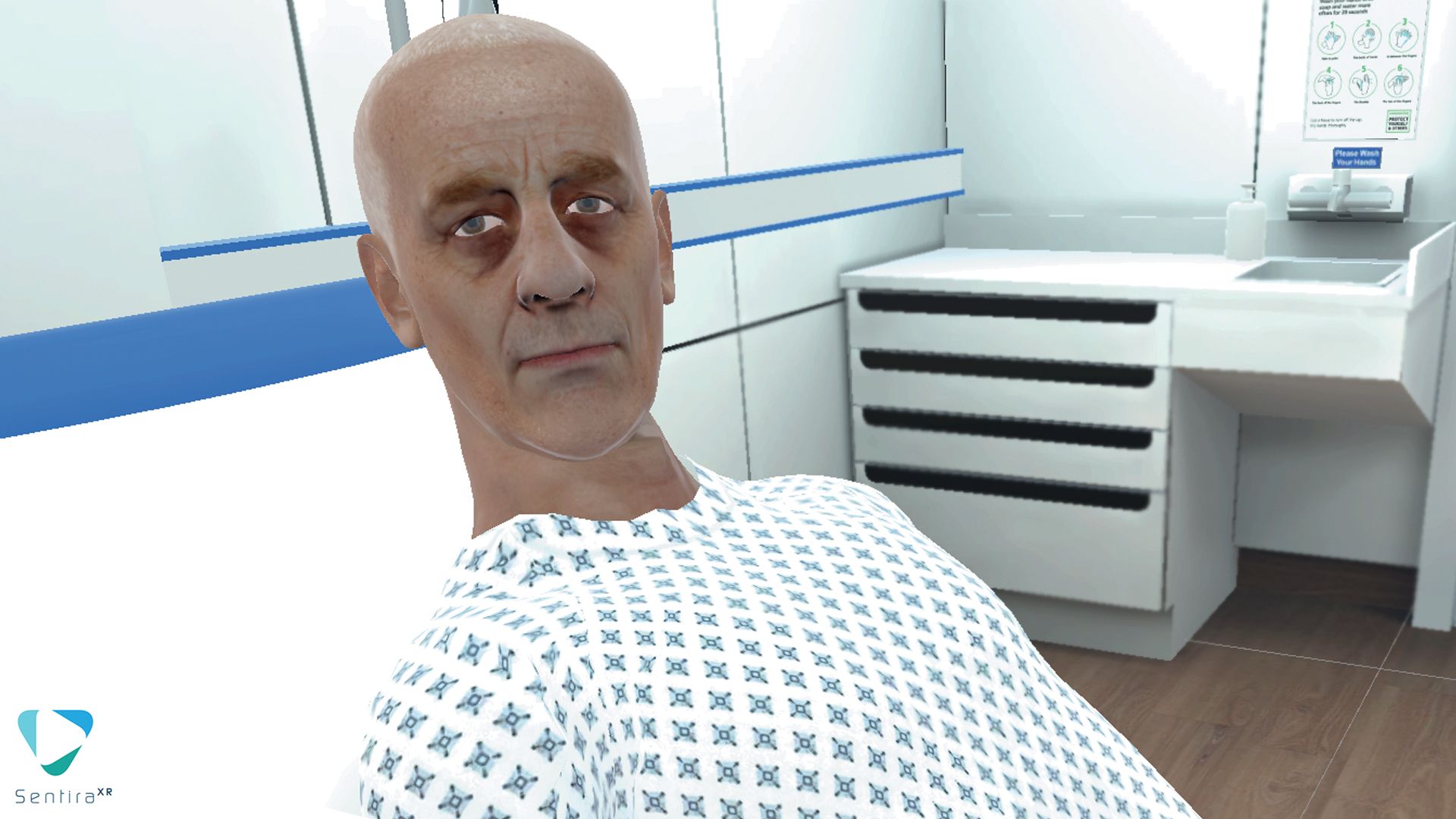
ENT Simulation
Hospital setting
Elderly patient experiencing problems eating and drinking
- Gain consent and take medical history from the patient
- Assessment and feedback on questions asked and information collected
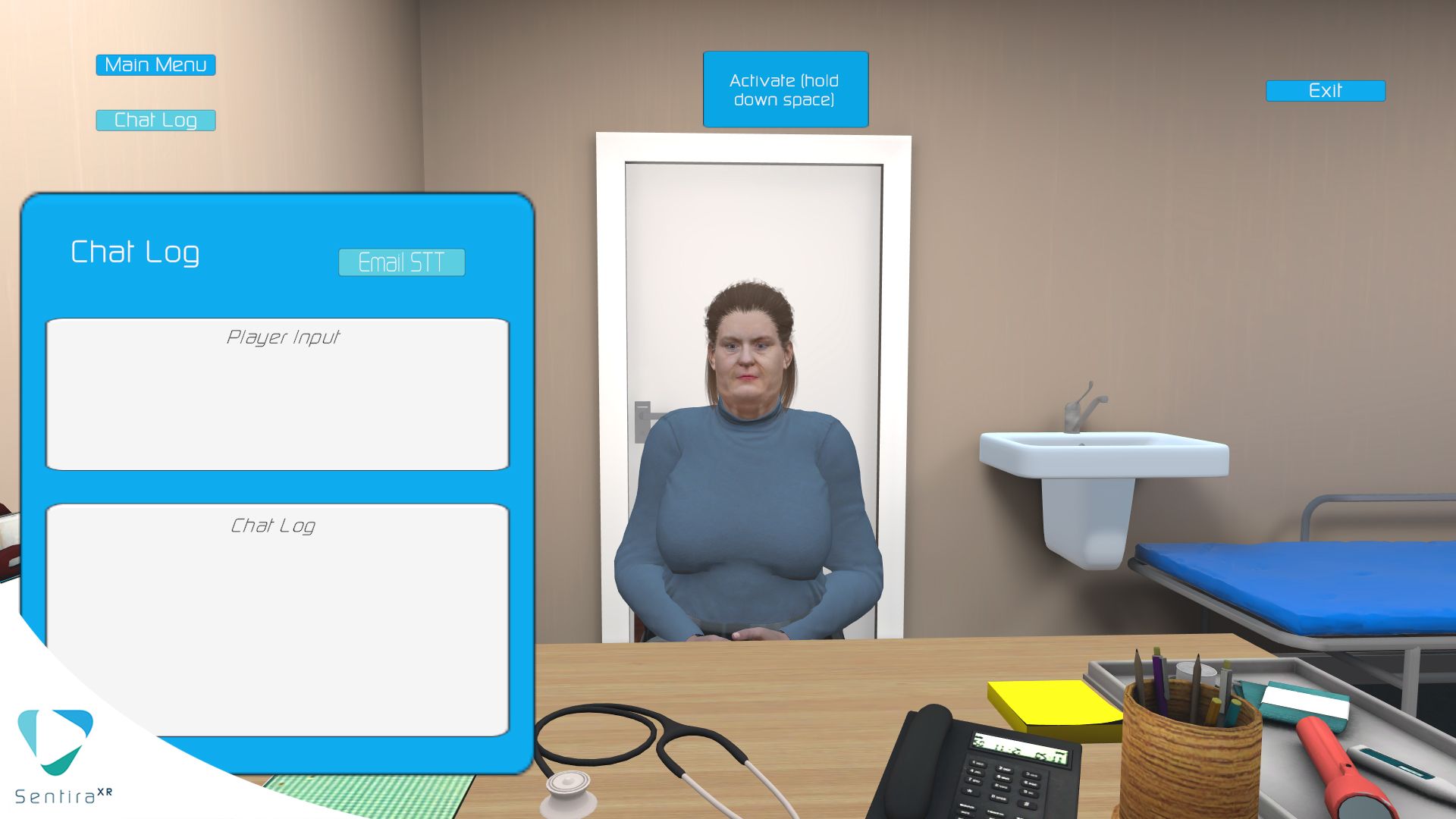
NLP Diabetes Simulation
GP Surgery setting
Adult with type-2 diabetes
- Gain consent and take medical history from the patient
- Patient is struggling to cope at home, investigate reasons for this
- Assessment and feedback on questions asked and information collected
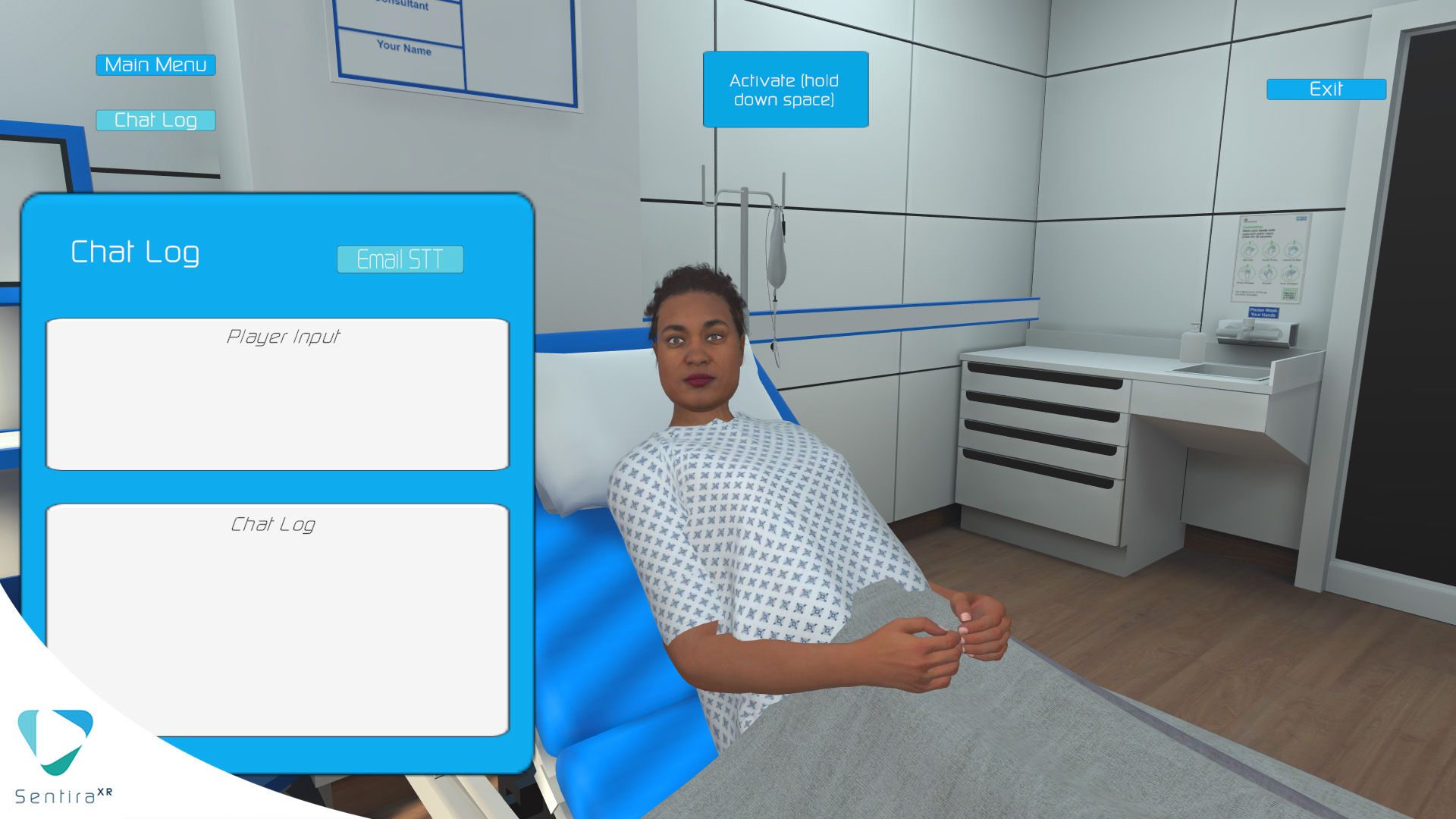
NLP Crohn’s Disease Simulation
Hospital setting
Adult with Crohn’s disease
- Gain consent and take medical history from the patient
- Patient has been rushed to hospital but is eager to get home, investigate reasons for this
- Assessment and feedback on questions asked and information collected
Pharmacy Simulations
Pharmacy setting
19 individual ailment cases
- Cases including: emergency hormonal contraception, body injuries, allergies, insomnia, viruses, eye issues and skin conditions
- Speak to customers and decide on the best course of action for them, this could be an over counter medication or referring them to hospital
- Feedback and assessment on performance following a tailored mark scheme
Tracheostomy AI Assistant
Care unit setting
NLP assistant and Adult patient
- Speak to an AI assistant clone of a tracheostomy specialist and ask any questions you may have on tracheostomies and laryngectomies
- Train to perform a tube change on a patient following the patients personal algorithm


Set to change medical and inter-professional training beyond recognition
As VR continues to be implemented and integrated within curricula, its use will become mainstream. The ability for multiple learners to take part in truly inter-professional, completely life-like simulation which is not bound by geography is set to change how we conduct medical and inter-professional education beyond recognition.
National Library of Medicine: Virtual reality and the transformation of medical education.
” Set to change medical and inter-professional training beyond recognition “
As VR continues to be implemented and integrated within curricula, its use will become mainstream. The ability for multiple learners to take part in truly inter-professional, completely life-like simulation which is not bound by geography is set to change how we conduct medical and inter-professional education beyond recognition.
National Library of Medicine: Virtual reality and the transformation of medical education.
